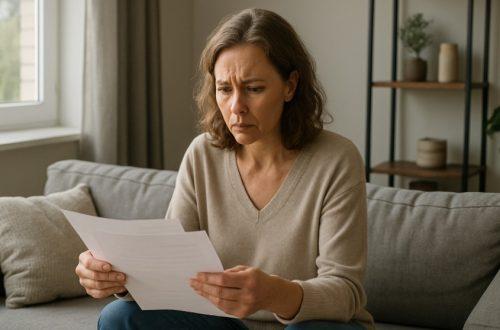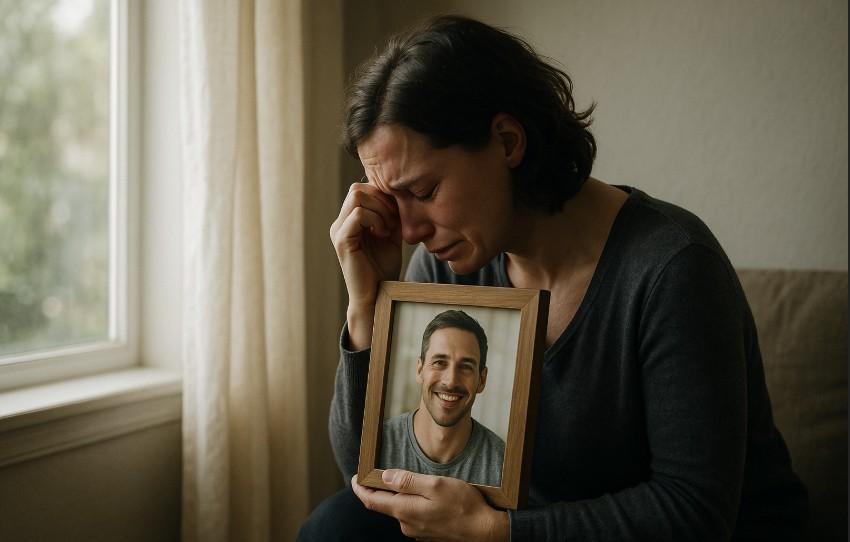Have you recently lost a partner and are now unsure about what financial support you might be entitled to? Navigating through loss is hard enough without the added stress of money worries.
Thankfully, the UK Government offers a financial support scheme called the Bereavement Support Payment, managed by the Department for Work and Pensions (DWP). Whether you were married, in a civil partnership, or cohabiting, you might be eligible to receive this non-means-tested benefit.
Understanding how this payment works, who can apply, how much you could receive, and how it affects your other benefits can bring clarity during this overwhelming time.
This blog will walk you through everything you need to know, from eligibility criteria to application steps, so you can make informed decisions and receive the financial help you may be entitled to after losing a partner.
What Is the DWP Bereavement Payment?

If your spouse, civil partner, or long-term cohabiting partner has died, you may be eligible to receive a Bereavement Support Payment through the DWP. This benefit has replaced older forms of bereavement assistance such as Bereavement Allowance, Bereavement Payment, and Widowed Parent’s Allowance for new applicants.
This payment is designed to help ease the short-term financial pressure you may face after your partner’s death. It offers a tax-free lump sum and up to 18 monthly payments, depending on your situation. The good news is that this payment is not based on your income, savings, or whether you’re currently working.
Key highlights of the Bereavement Support Payment include:
- Available to those who were under State Pension age when their partner died
- Offered regardless of your current income or savings
- Paid directly into your bank or building society account
- Available to both married and unmarried partners (under specific conditions)
The payment aims to offer you some breathing space while you adjust to the emotional and financial challenges that follow the loss of a loved one. It’s important to act promptly as the amount you receive can depend heavily on when you apply.
Who Can Claim Bereavement Support Payment?
Not everyone is eligible for the Bereavement Support Payment, so it’s essential to check whether you meet the qualifying criteria. This support is available for those who were married, in a civil partnership, or living together as if married at the time of their partner’s death.
To qualify, the following must apply to your situation:
- You were under State Pension age when your partner passed away
- You were living in the UK or a country that pays bereavement benefits
- Your partner must have paid Class 1 or Class 2 National Insurance contributions in at least one tax year since 6 April 1975
- Alternatively, your partner must have died due to a work-related accident or work-induced illness
- You cannot be in prison at the time of the claim
In addition, cohabiting partners can also qualify, but certain conditions apply:
- You must have been living together as a couple
- You must either have been receiving Child Benefit, told you were entitled to it, or been pregnant at the time of their death
This payment is not means-tested, meaning your earnings or financial assets will not affect your eligibility. If you are uncertain whether your partner paid enough National Insurance contributions, the DWP Bereavement Service will confirm that for you.
How Much Is the Bereavement Support Payment?
The amount you can receive from the Bereavement Support Payment depends on your relationship status, whether you have dependent children, and how quickly you apply after your partner’s death.
The payment is divided into a tax-free lump sum and monthly payments for up to 18 months. Applying within the correct timeframe is essential to ensure you receive the full amount.
Comparing Payment Tiers and Eligibility
| Criteria | Higher Rate | Lower Rate |
| Responsible for Child / Pregnant | Yes | No |
| Lump Sum | £3,500 | £2,500 |
| Monthly Payments (up to 18 months) | £350 | £100 |
| Total Possible Support | £9,800 | £4,300 |
| Payments Taxable | No | No |
| Affects Means-Tested Benefits (1st Year) | No | No |
It’s important to note that if you’re approaching State Pension age within 18 months of your partner’s death, your monthly payments may be reduced. Understanding which tier you fall into will help ensure you claim the right amount of support at the right time.
When Should You Apply for DWP Bereavement Payment?

The timing of your application plays a key role in determining how much financial support you’ll receive. While you can apply within 21 months of your partner’s death, applying sooner increases your chance of receiving the full amount.
Claim Timelines Explained
To get the full payment (lump sum + all 18 monthly payments), you must apply within 3 months of your partner’s death. If you apply between 3 and 12 months after the death, you’ll still get the lump sum but fewer monthly payments.
If you apply between 12 and 21 months, you can still receive some monthly payments but will miss out on the lump sum. Beyond 21 months, your application will generally be rejected, unless the cause of death was confirmed only recently.
How Timing Affects What You Receive?
- Applying within 3 months: Full payment
- Applying between 3–12 months: Lump sum + reduced monthly payments
- Applying between 12–21 months: No lump sum, some monthly payments
- Applying after 21 months: Typically ineligible
Claiming After 3, 12, and 21 Months
It’s important not to delay your application. Even if you’re unsure about eligibility, it’s best to initiate the process and let the Bereavement Service guide you. Delaying could mean losing out on significant financial help that you’re entitled to.
What Happens If You’re Not Married or in a Civil Partnership?
Being unmarried doesn’t automatically exclude you from receiving Bereavement Support Payment. The law has evolved to include cohabiting partners, provided certain criteria are met.
You can qualify for the same rate as married or civil partners if:
- You were living together as a couple at the time of the death
- You were either receiving Child Benefit, told you were entitled to it, or were pregnant
This means that even if you weren’t legally married, the government recognises the financial interdependence that often exists in long-term relationships. If your partner was the one receiving Child Benefit, you must apply to have it transferred into your name before claiming the bereavement payment.
Although it’s a positive step that cohabiting partners are included, these conditions must be met for your claim to succeed. Being proactive in organising documentation can ensure a smoother application process.
Will Bereavement Support Affect Your Other Benefits?
One common concern when applying for Bereavement Support Payment is whether it will impact your existing benefits. Thankfully, there is no immediate effect on most benefits you receive.
For the first 12 months after receiving the Bereavement Support Payment, the funds are disregarded in means-tested benefit calculations. This includes housing support, Universal Credit, and income support. However, after 12 months, any unspent amount from the lump sum may be considered during reassessments of your other benefits.
Here’s what you need to do:
- Inform your local Jobcentre Plus or benefit office when you start receiving payments
- Keep track of any unspent money from the lump sum
- Be ready for reassessment after 12 months
The monthly payments also do not count towards the benefit cap and are not taxed. This allows you to maintain your existing support while adjusting financially after a bereavement.
How Do You Apply for Bereavement Support Payment?

Applying for Bereavement Support Payment is relatively straightforward, and you have multiple options depending on your preference. The application process is designed to be accessible and supportive.
Step-by-step Guide: Online, Phone, and Post Options
You can apply in one of three ways:
- Online: Visit the official government website and complete the application in about 15 minutes
- Phone: Call the Bereavement Service helpline and speak with an advisor
- Post: Download or request a BSP1 claim form and send it to the address provided
Choose the method that feels most comfortable for you.
What Details Do You Need to Prepare?
Before starting your application, gather the following:
- Your National Insurance number
- Your partner’s National Insurance number
- The date of their death
- Your bank or building society account details
Being organised will help speed up your claim and avoid processing delays.
What to Expect During the Application Process?
- Online applications must be completed in one sitting (within 30 minutes)
- Phone lines operate Monday to Friday, 8 am to 6 pm
- You’ll receive your lump sum soon after approval
- Monthly payments are sent regularly to your chosen account
The process is designed to offer help at a time when you may need it most. It’s okay to reach out to the helpline for guidance at any point.
What If You Live Outside the UK?

Living outside the UK does not necessarily stop you from claiming Bereavement Support Payment. There are provisions in place for individuals living abroad, provided they were eligible when their partner died.
You can apply by contacting the International Pension Centre. Make sure to prepare the required documents and details, just as you would if you were applying within the UK.
What to remember:
- You must still meet the eligibility conditions
- Your partner must have paid the necessary National Insurance in the UK
- Your claim must be submitted within the standard time limits
For residents in Northern Ireland, the application process differs slightly, so be sure to contact the correct department based on your location. Support is still available no matter where you are, and help is just a call away.
Conclusion
The DWP Bereavement Support Payment is a vital source of financial relief during an emotionally difficult time. Understanding how it works, whether you qualify, how much you could receive, and how to apply can make a big difference.
Whether you were legally married, in a civil partnership, or living with a partner, there are options available to help. The most important step you can take is to apply as early as possible to ensure you receive the full support you’re entitled to. If you’re unsure or feel overwhelmed, don’t hesitate to contact the Bereavement Service helpline. You’re not alone, and help is available.
FAQs
How soon should I apply for Bereavement Support Payment?
You should apply within 3 months of your partner’s death to get the full amount. Late applications reduce the number of monthly payments or eliminate the lump sum.
Can I claim Bereavement Support Payment if I wasn’t married?
Yes, if you were living together as a couple and had a child or were pregnant at the time of death, you may be eligible.
Does Bereavement Support Payment affect Universal Credit?
No, it doesn’t affect means-tested benefits like Universal Credit for the first year. After 12 months, unspent funds from the lump sum may be considered.
Can I apply if my partner died years ago?
Generally, you must apply within 21 months of the death. Exceptions may apply if the cause of death was only recently confirmed.
Is Bereavement Support Payment taxable?
No, it is tax-free. Neither the lump sum nor monthly payments are subject to tax.
What documents do I need to apply?
You’ll need your and your partner’s National Insurance numbers, the date of death, and your bank details.
Can I still get this payment if I live abroad?
Yes, you may be eligible. You’ll need to contact the International Pension Centre to start your claim from outside the UK.








